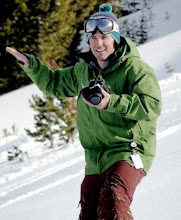I see many reflections in the Bhagavad-Gita in my post on "To the Lighthouse" and the practical knowledge from this class. I think the Sacred Duty in the Bhagavad-Gita is very similar to the concept of personal inscape that I came to in "To the Lighthouse." The Sacred Duty isn't fate but rather the Cosmic purpose for each unique individual on the planet. This cosmic purpose is the "thing" the self was built to do while in existence within the present body. I think finding this "thing" or this "drive" or "reason" or "purpose" (I do not have a perfect english word for it) is the ultimate epiphany. The higher power placed our "self" within a body to achieve dharma. Achieving Dharma is grand epiphany while constrained to the present body. However, these grand epiphanies are not singular. The "self" is unrestrained. As the immortal self jumps from existence to existence, it can find other grand epiphanies within other bodies or containers (whatever they may be). To better explain this I turn to my buddy Hopkins in his poem "The Caged Skylark" where he compares a caged skylark to man's spirit
Both sing sometimes the sweetest, sweetest spells,
Yet both droop deadly sometimes in their cells
Or wring their barriers in bursts of fear or rage
Not that the sweet-fowl, song-fowl, needs no rest--
Why, hear him, hear him babble and drop down to his nest
But his own nest, wild nest, no prison.
Man's spirit will be flesh-bound when found at best,
But uncumbered: meadow-down is not distressed
For a rainbow footing it nor he for his bones risen.
I think Hopkins is saying that our "self" can be found and controlled "best" when "flesh-bound" and when the caged "self" discovers its Sacred Duty within its prison or body (perhaps through "sweetest spells" or "bursts of fear or rage") the "self" becomes limitless. It can use "rainbow footing" and see krishna in true form so to speak.
I digress, why is this practical? These texts reassures us and points us to the greatest destination in life, the sacred duty or personal inscape or the grand epiphany or whatever you want to call it. More importantly these texts reassure us that through all of the bullshit, this ideal destination exists and is attainable and is the only thing truly worth living for.
Now this is all pretty esoteric so I want to use a real world example. This comes from the Autobiography/Memoir of Gustavo Perez Firmat called "Next year in Cuba" that I read in US Latino Literature Class. It is a work of non-fiction and thus seems a bit more connected to our real "practical" world (at least to the layman). Firmat is a professor of latino literature at Duke University and now Cornell. He is also a Cuban Exile. His wealthy family emigrated to the US shortly after Castro took over. One of the major dynamics of the memoir is an exiles quest to find belonging and place in a country he didn't choose to live in. Much of this struggle is portrayed through Firmat's father Gustavo Sr. In Cuba Gustavo Sr. was a poorly educated but extremely wealthy businessman. He spent his life working in his family's almacen (spanish word for grocery distributor). By the Cuban revolution Gustavo Sr. was middle aged and his almacen was a multimillion dollar business. All of this was taken from him by the communist government and Gustavo Sr. went into Exile in Miami. Firmat writes this about his father
I have no idea what happens when you put your life into something like the almecen and it is taken away. It's not the money, mind you. The issue is not net worth but self-worth. In Spanish the word for soul is alma; Gustavo put his alma into his almacen. Take that away, and you unsoul him. Lose that, and you lose yourself. I write books and I teach young people to speak Spanish and appreciate literature. I view myself as a writer and teacher, meaningful occupations both. It's embarrasssing to admit this, but I didn't always understand the obvious: that selling sacks of rice and boxes of turron are meaningful occupations too. I though that being a professor was the higher calling. But in fact my Ivory tower rises no higher than his hill of beans.
This quote about a simple man, Gustavo, who at one point in his life found and achieved his Sacred Duty selling rice and beans is one of the most hopeful statements I've read, especially considering all that we have read. The hypothetical, esoteric, mystical, and mind numbing epiphany speak exists. As Krishna says:
Better to do one's own duty imperfectly
than to do another man's well;
doing action intrinsic to his being
a man avoids guilt.
Taking all of this in the context of this class I find this the most practical knowledge of all. Sacred Duty doesn't have to be fancy. It doesn't have to be a warrior, or a king, or a priest, scholar, philosopher, or judge. Realizing one's "self" and one's Sacred Duty in Rice and Beans offers a feeling of fulfillment no less amazing than any number of "Noble" professions in the world.
However, this practical knowledge is both relieving and terrifying. I think of all of the people who slave away every day at stuff they hate, shitty jobs and shitty lives. I think, hey this is cool I'm doing something I like...I just hope it's my Sacred Duty. Nothing more terrifying than that.
(darn it, my post got long again)

No comments:
Post a Comment